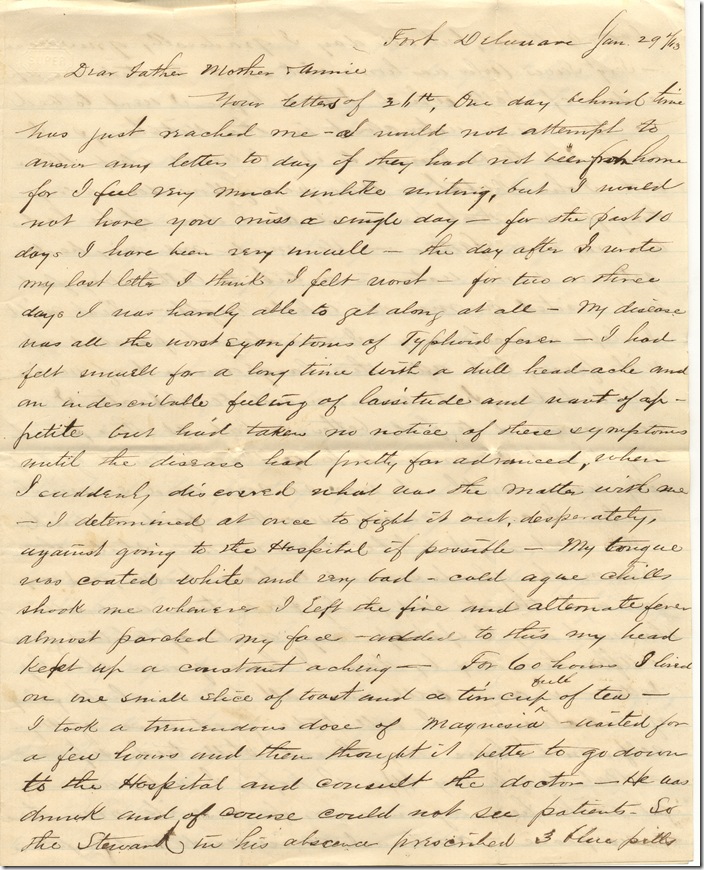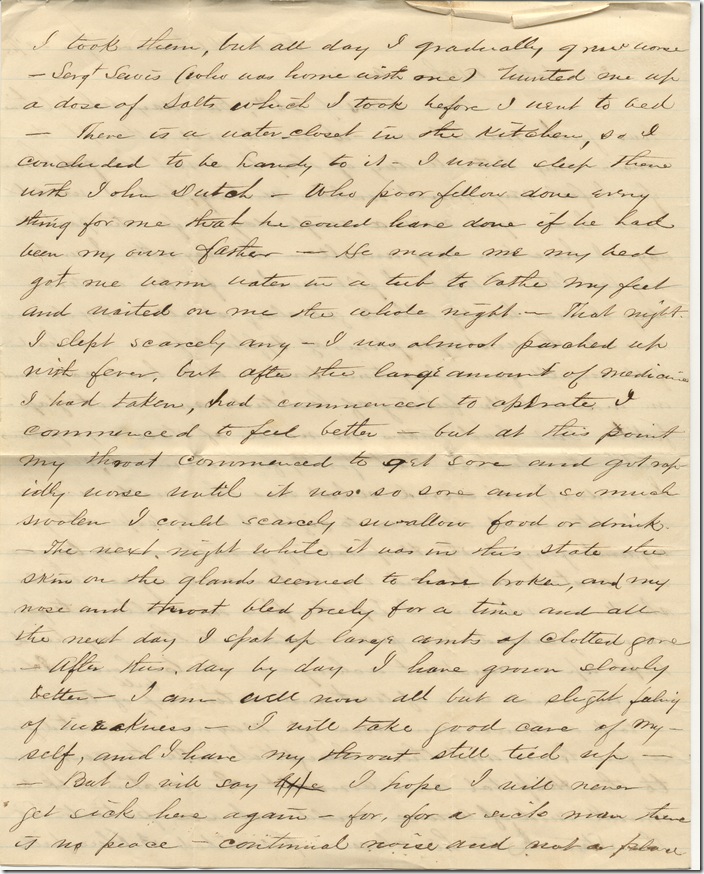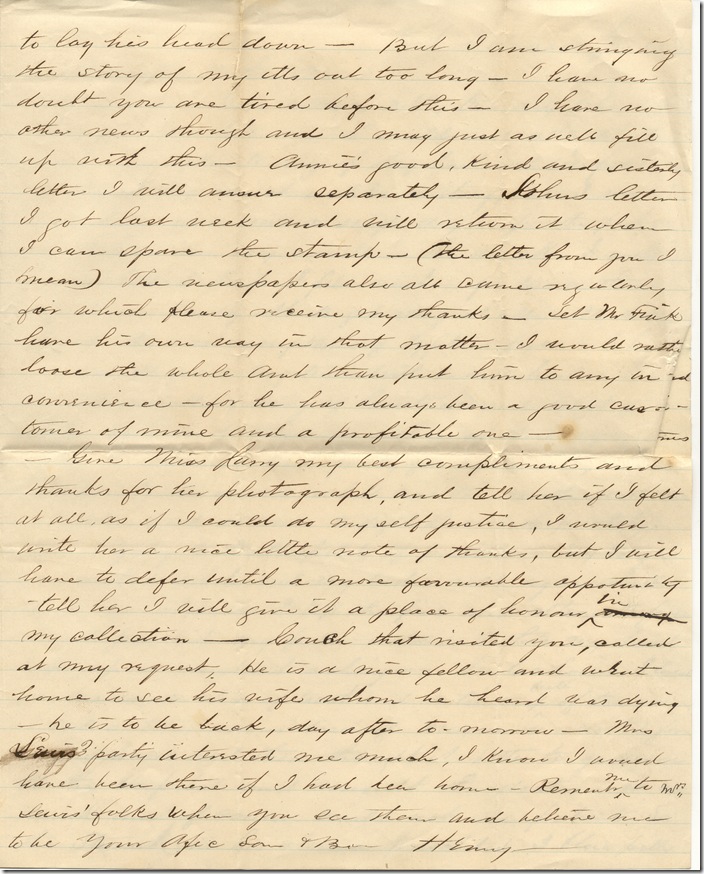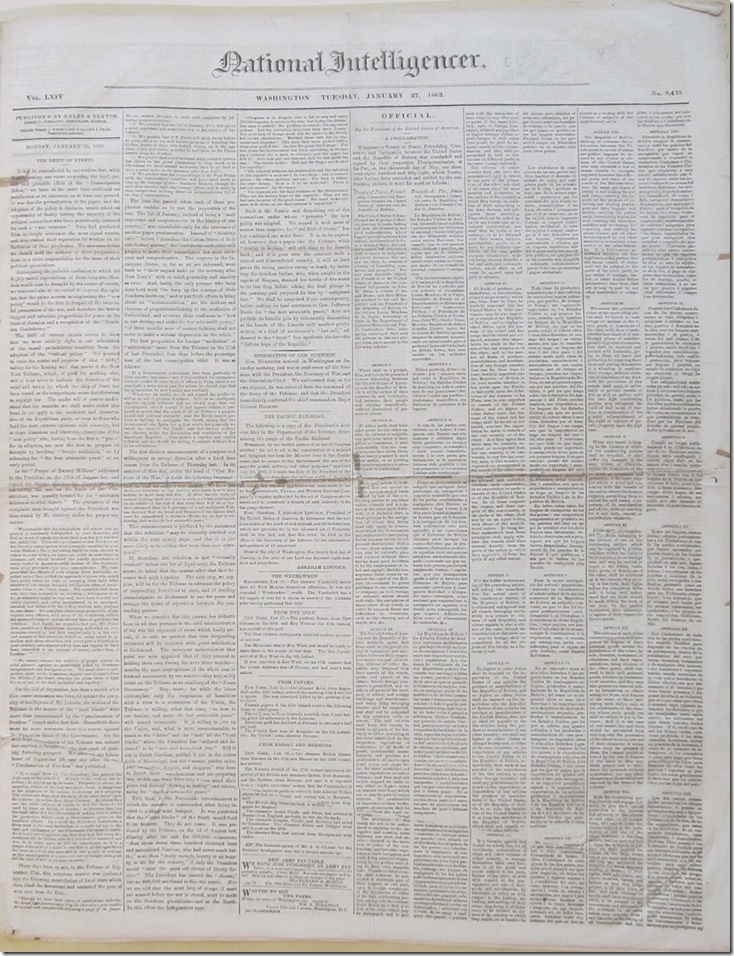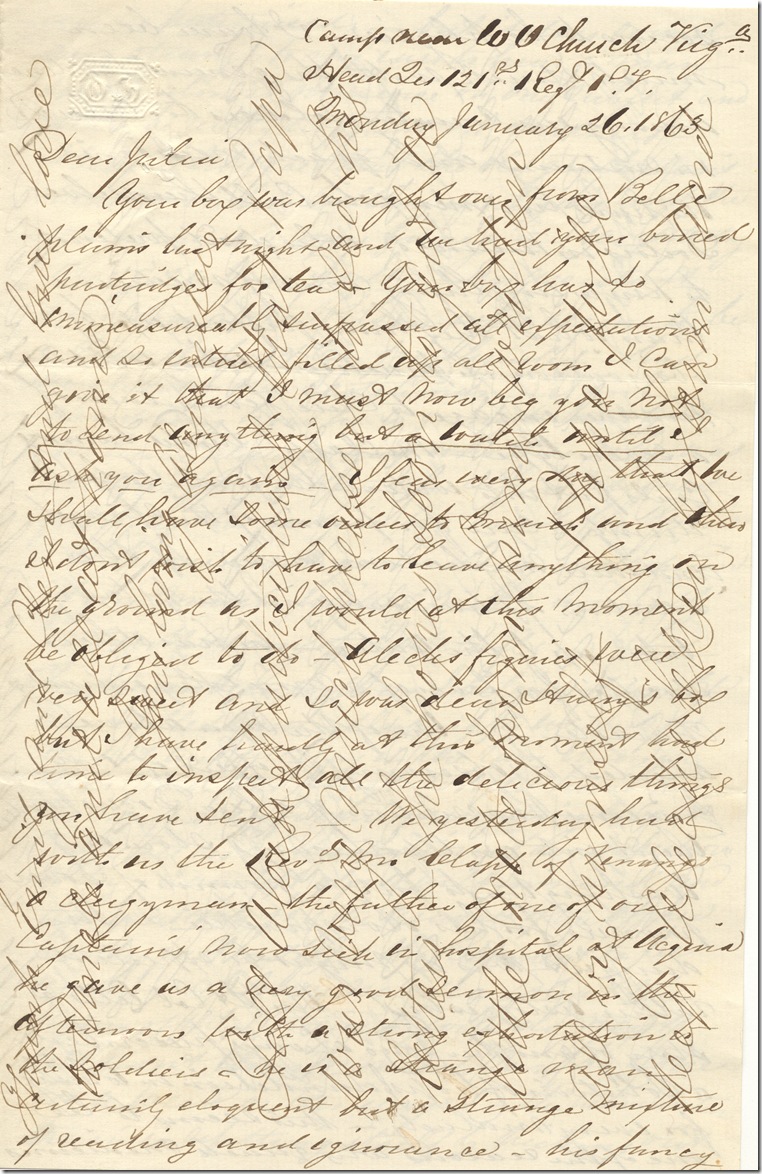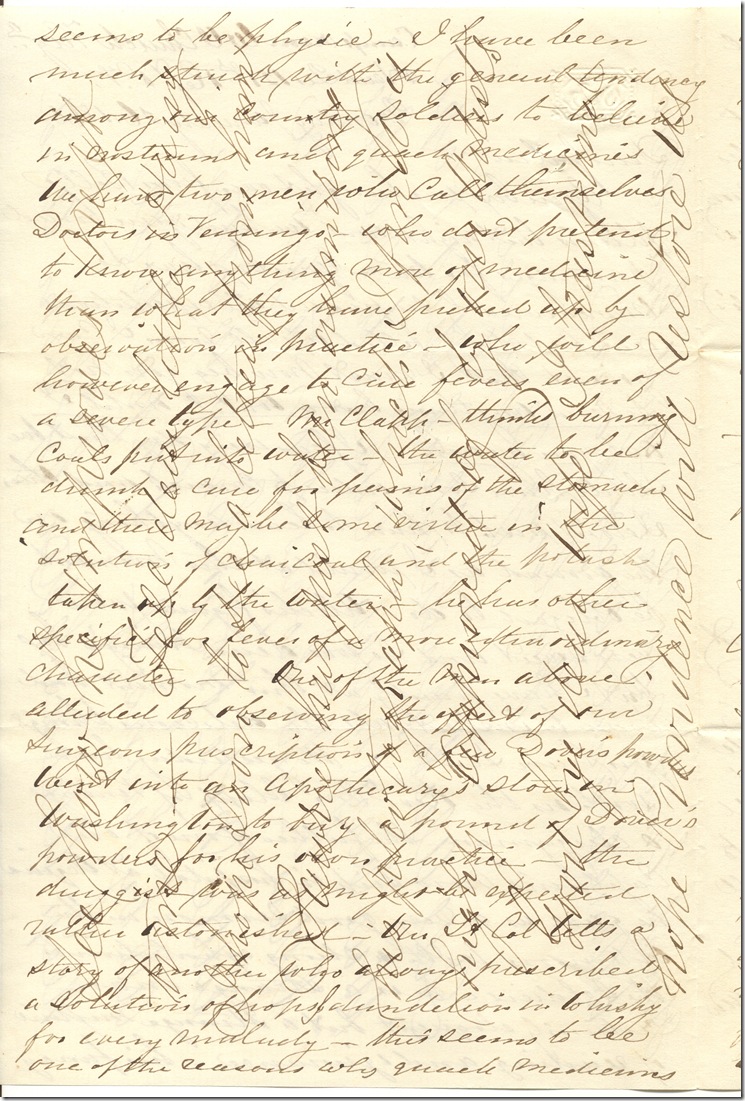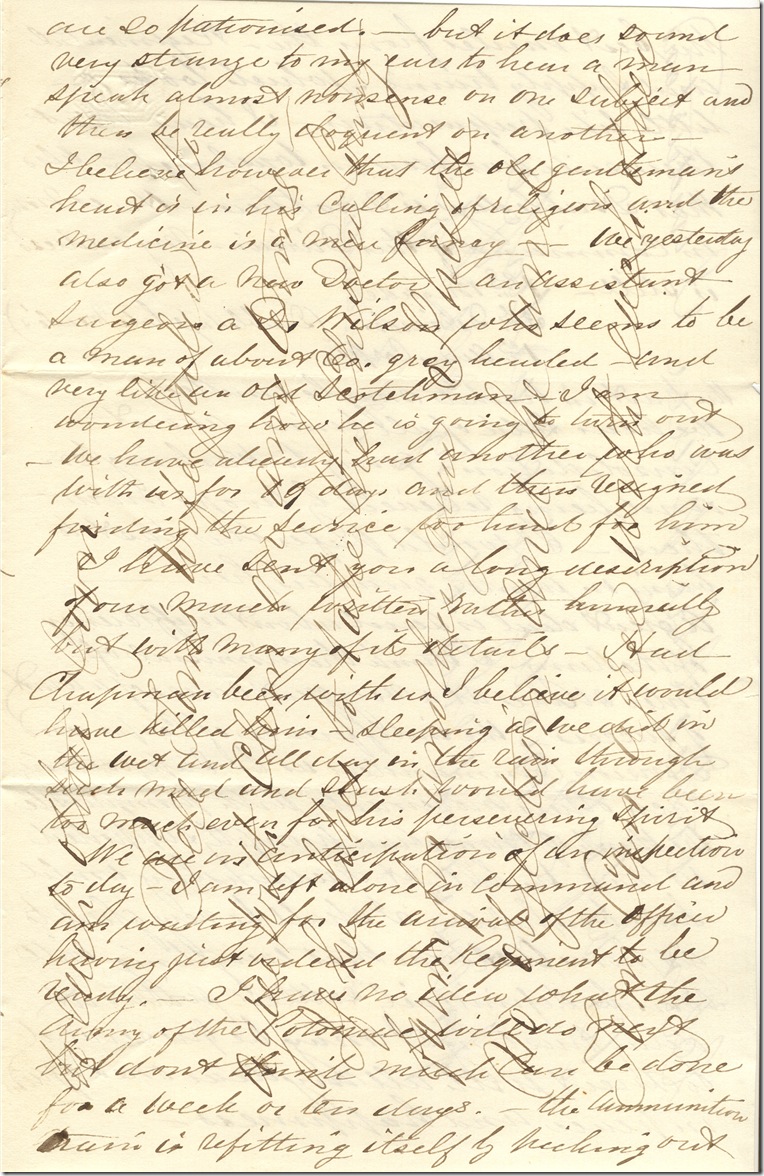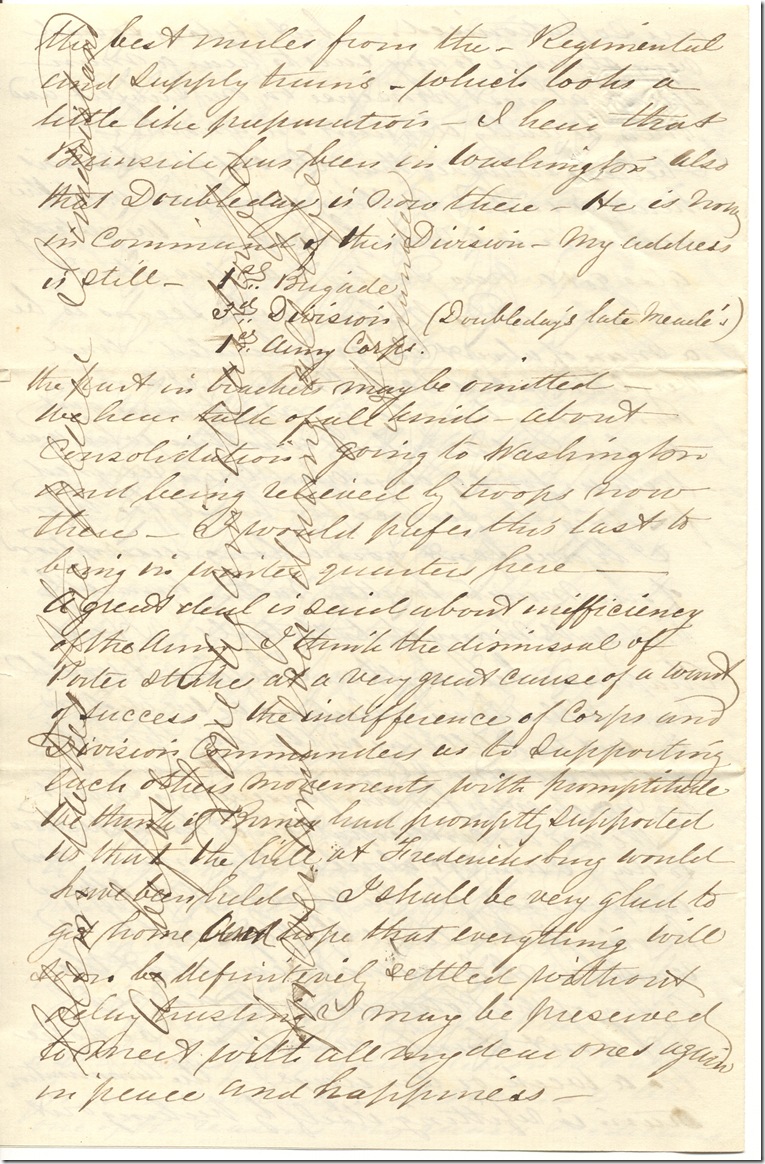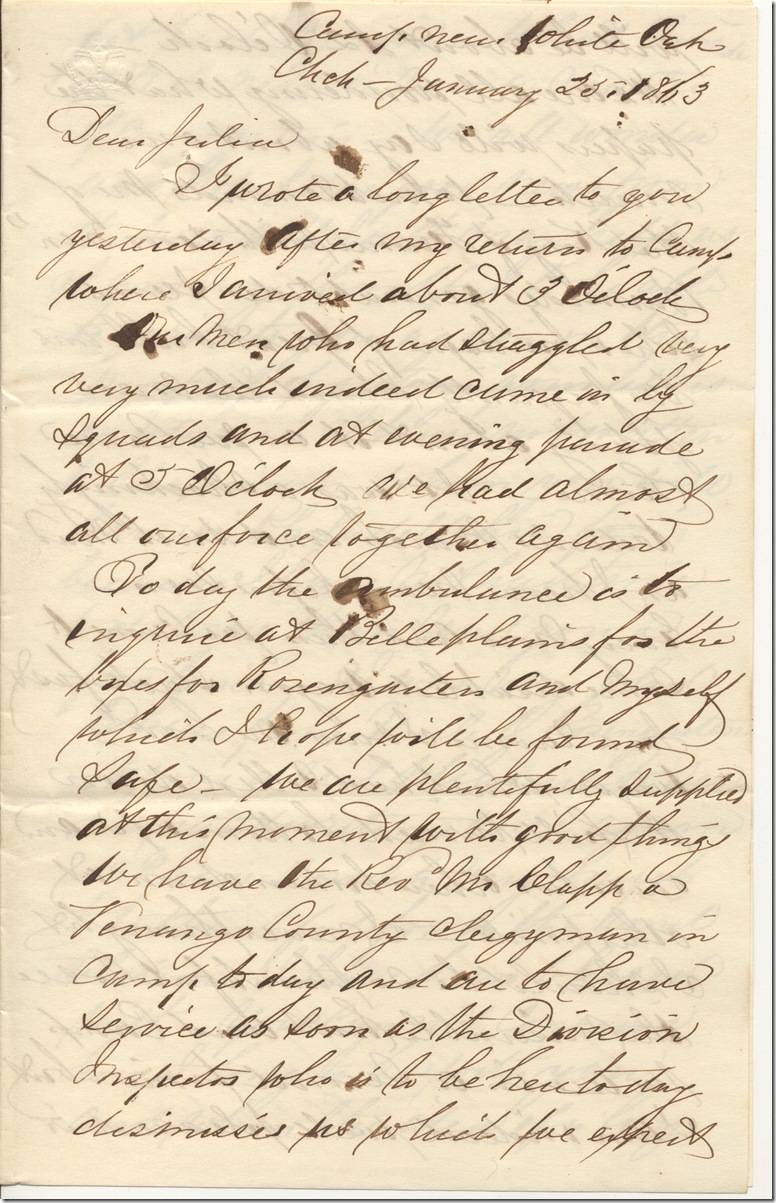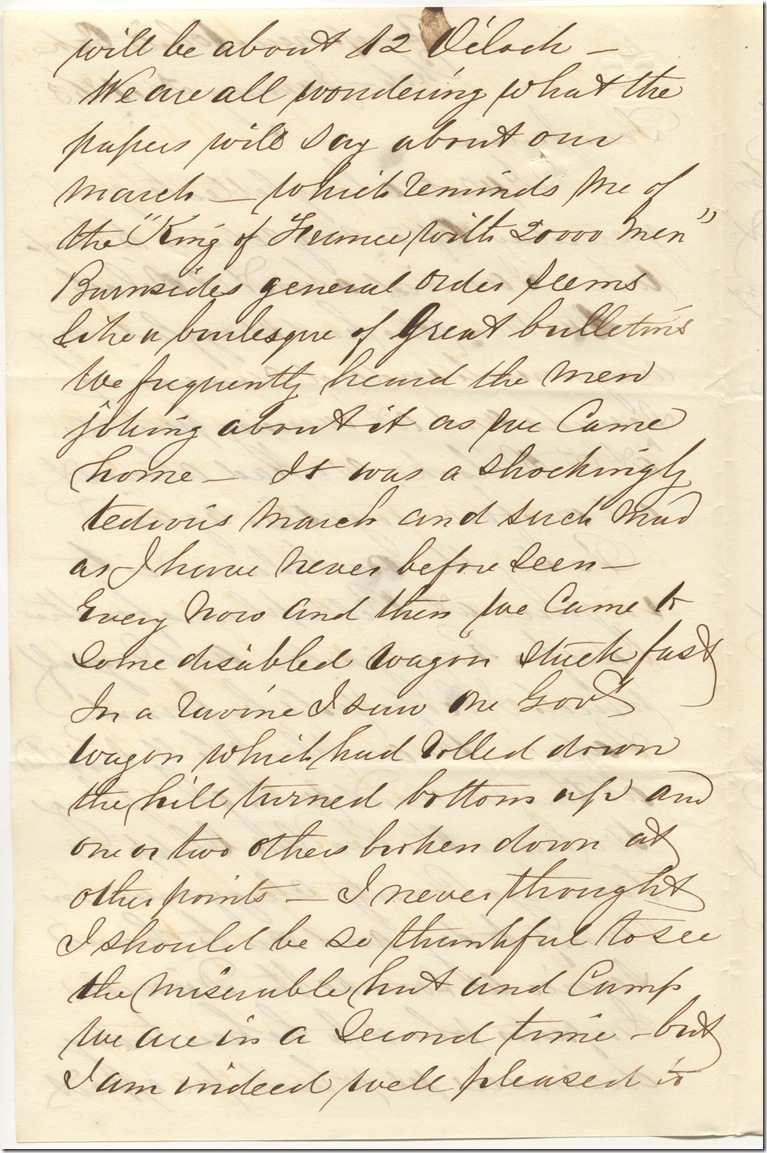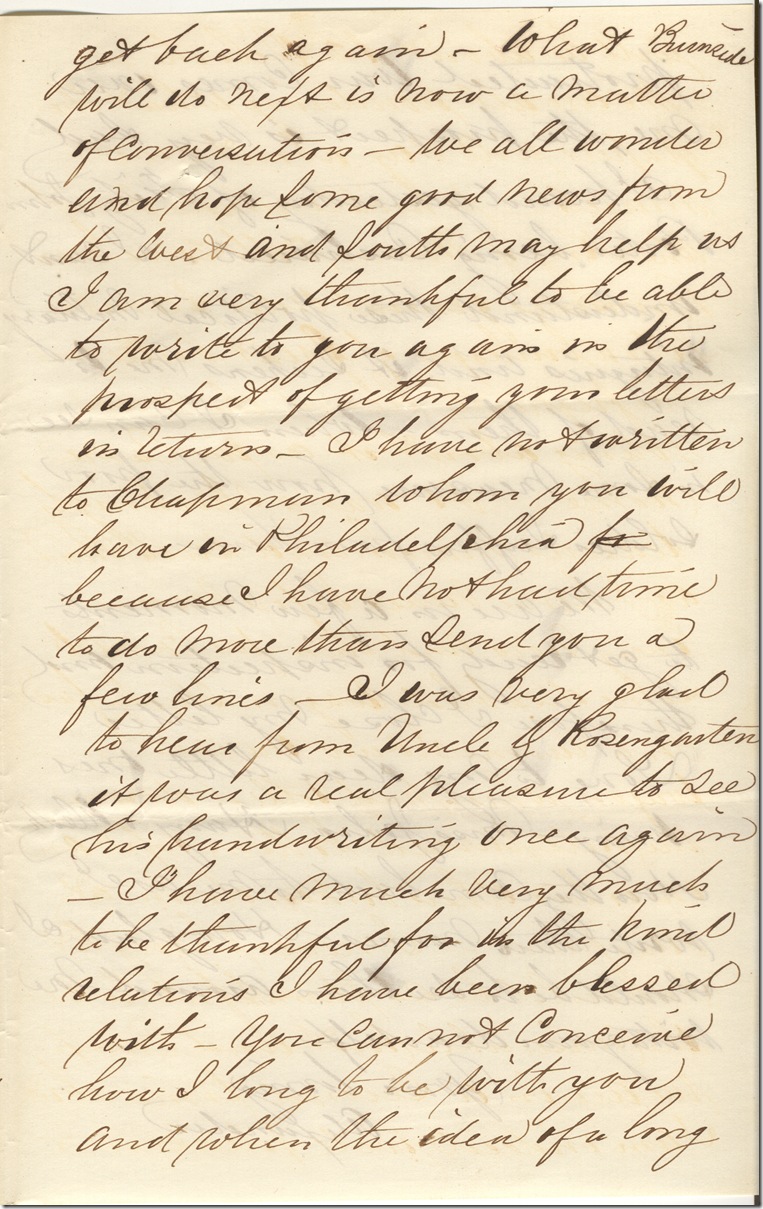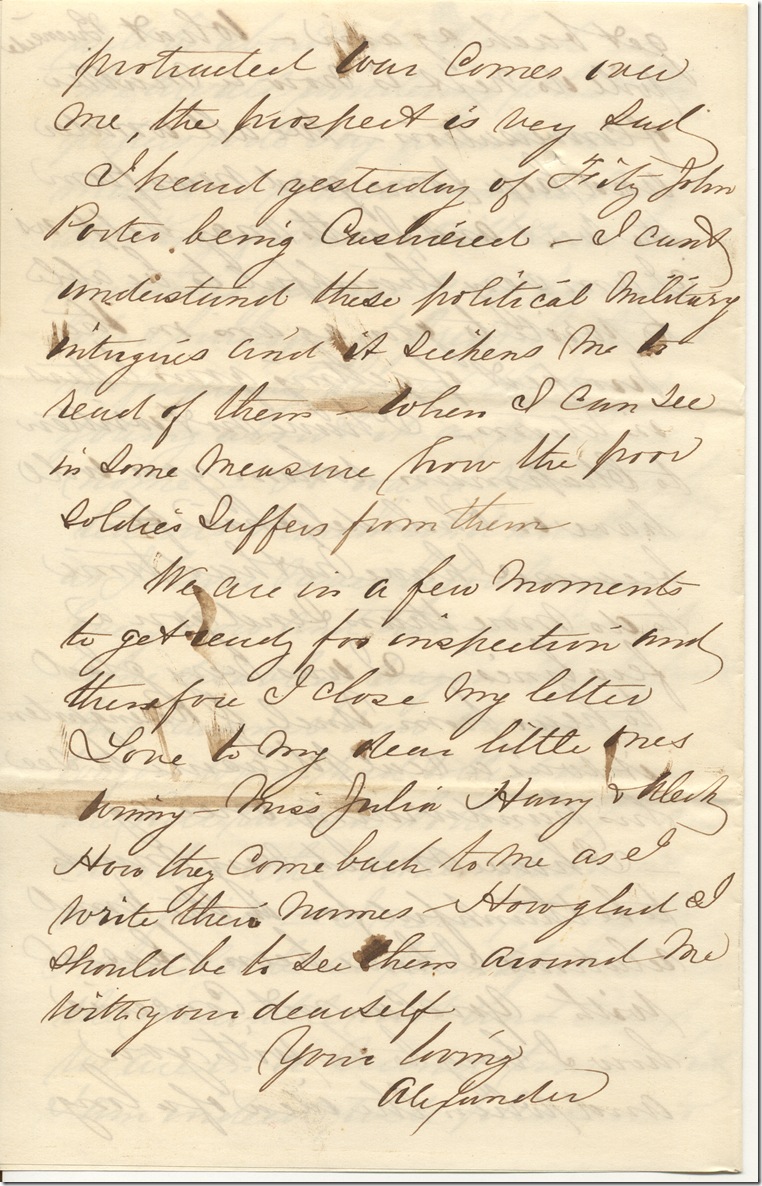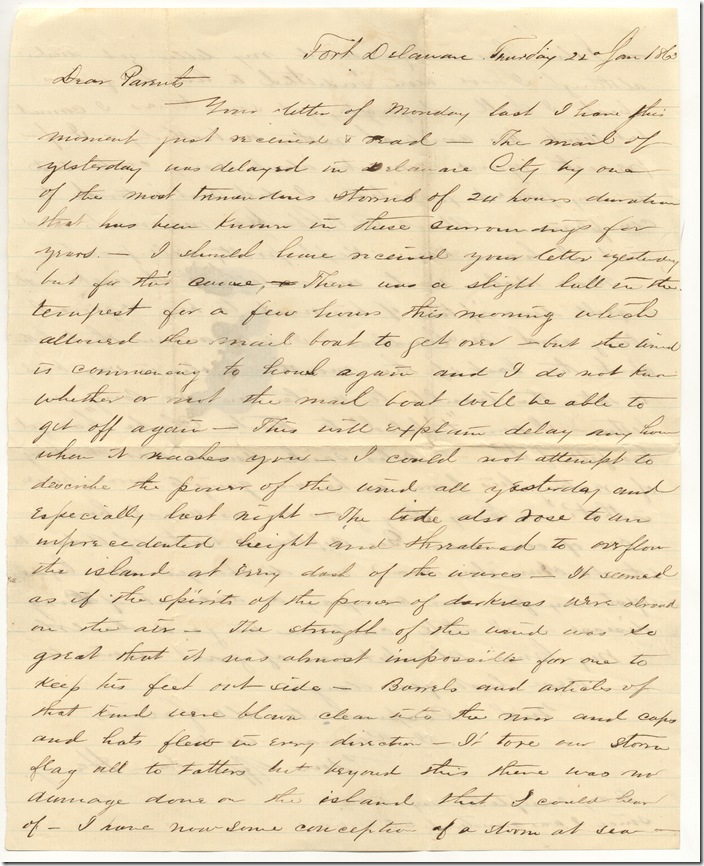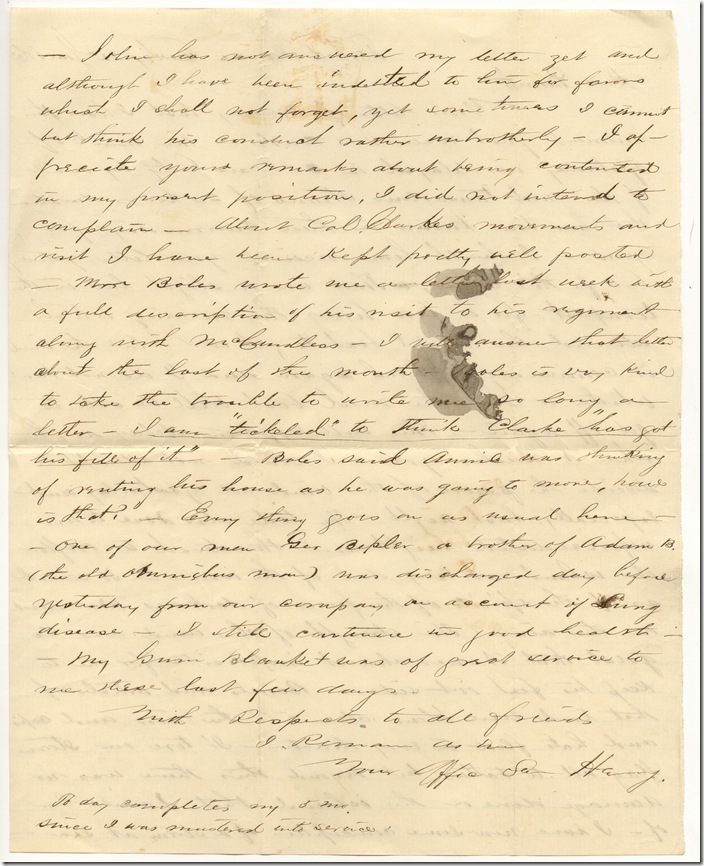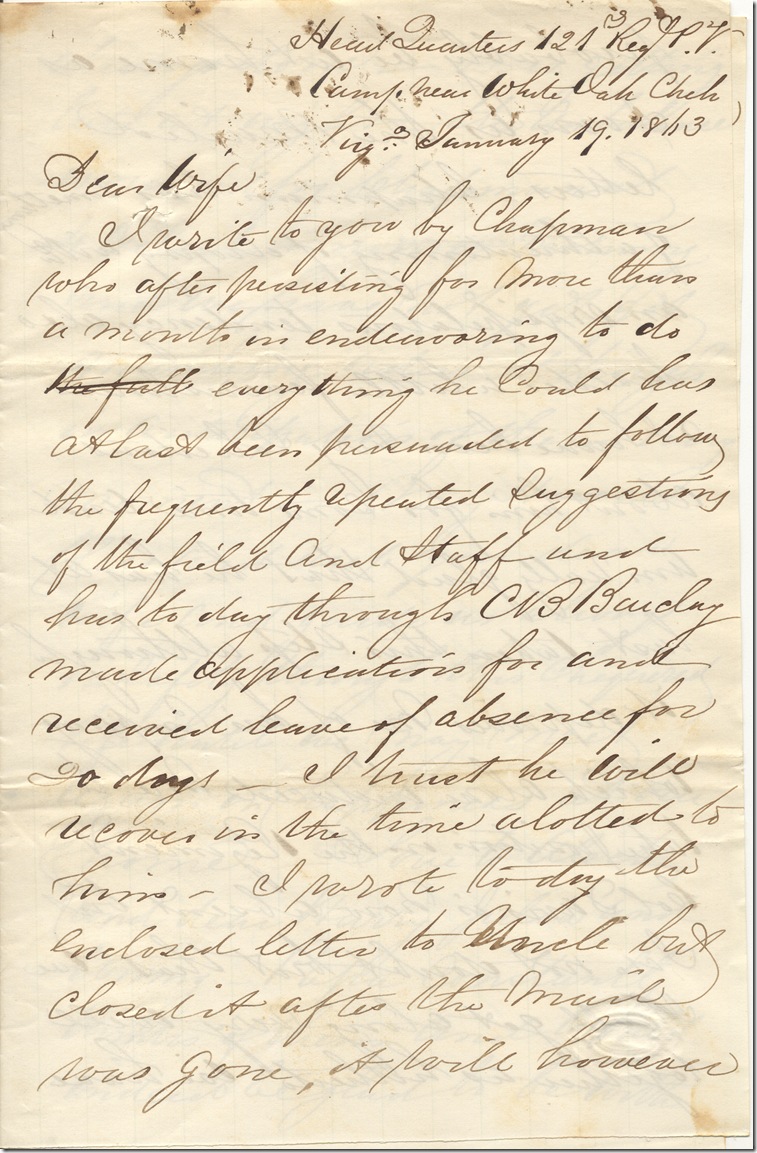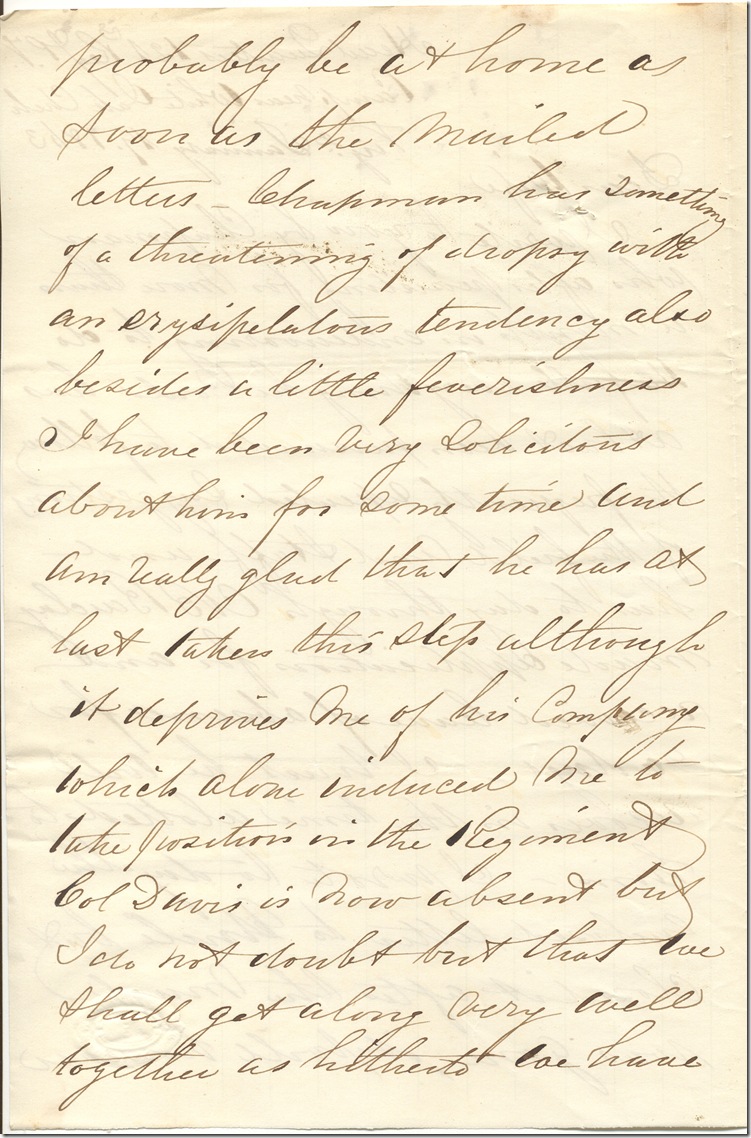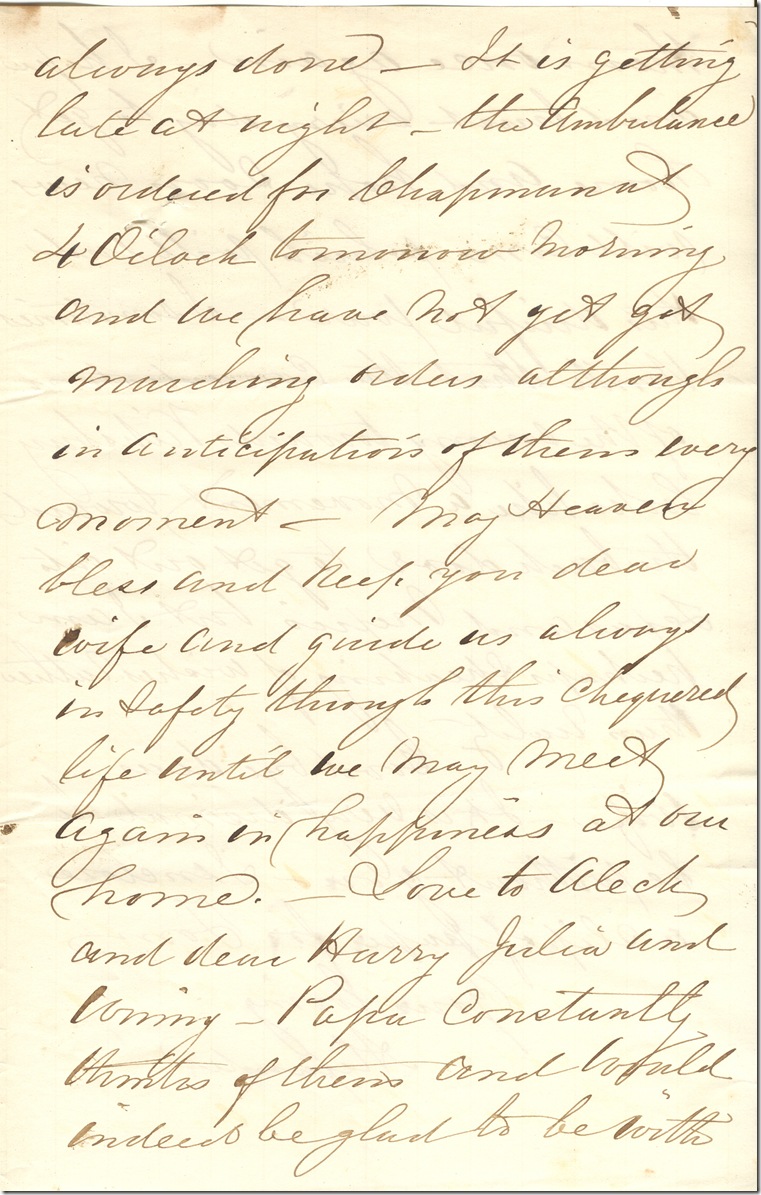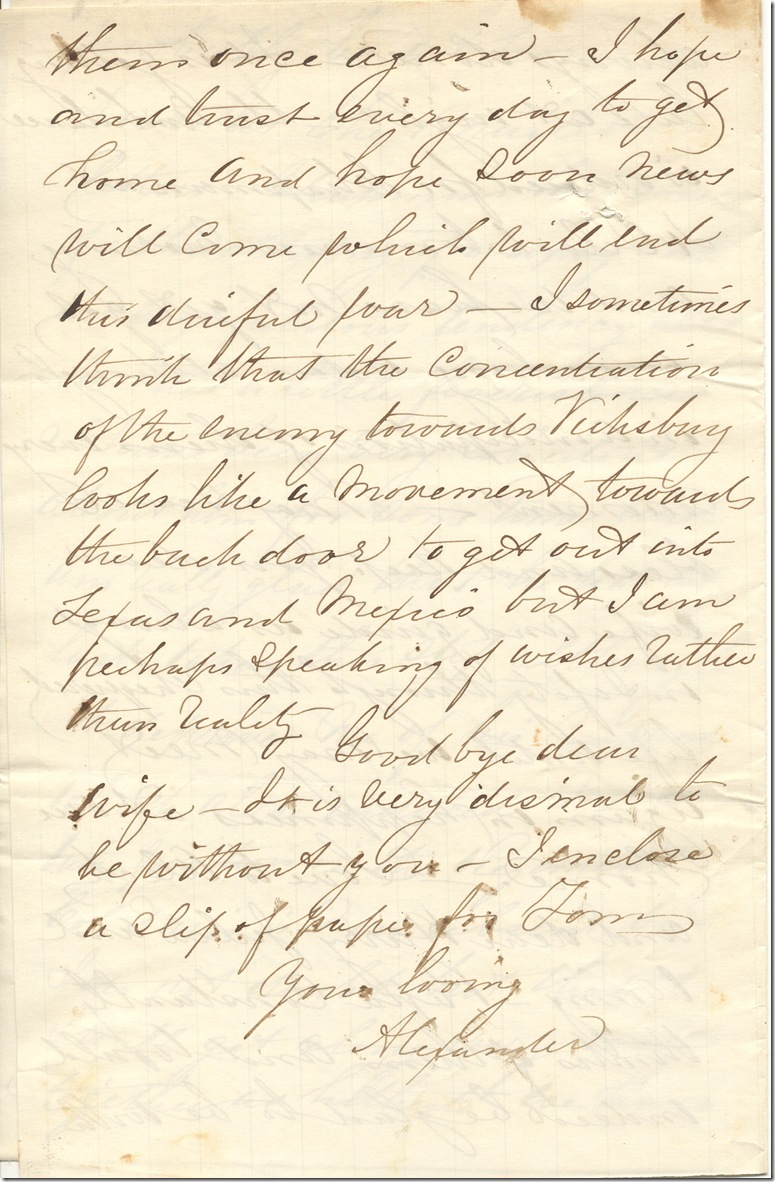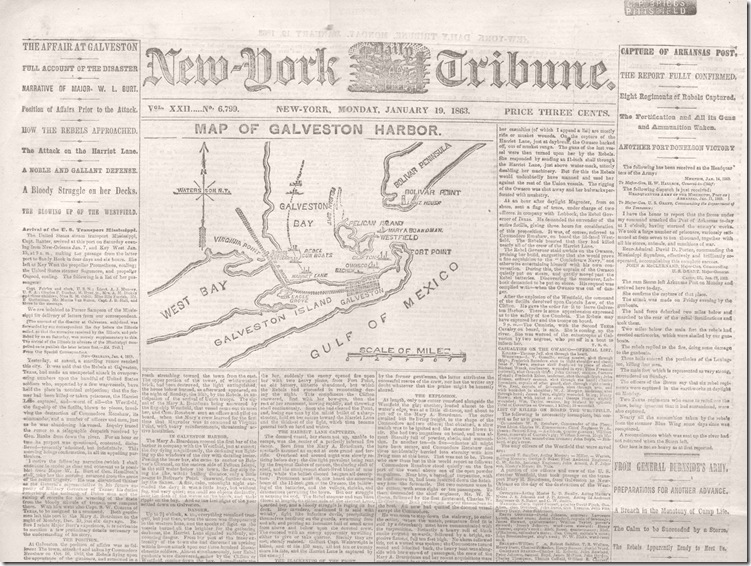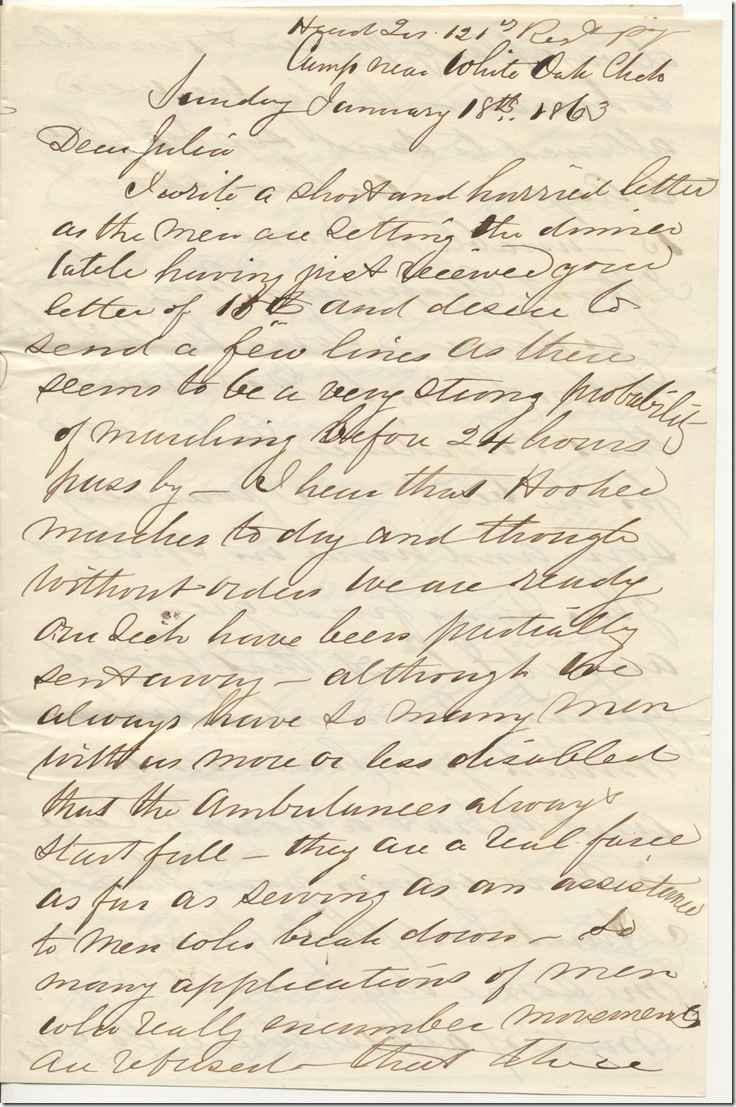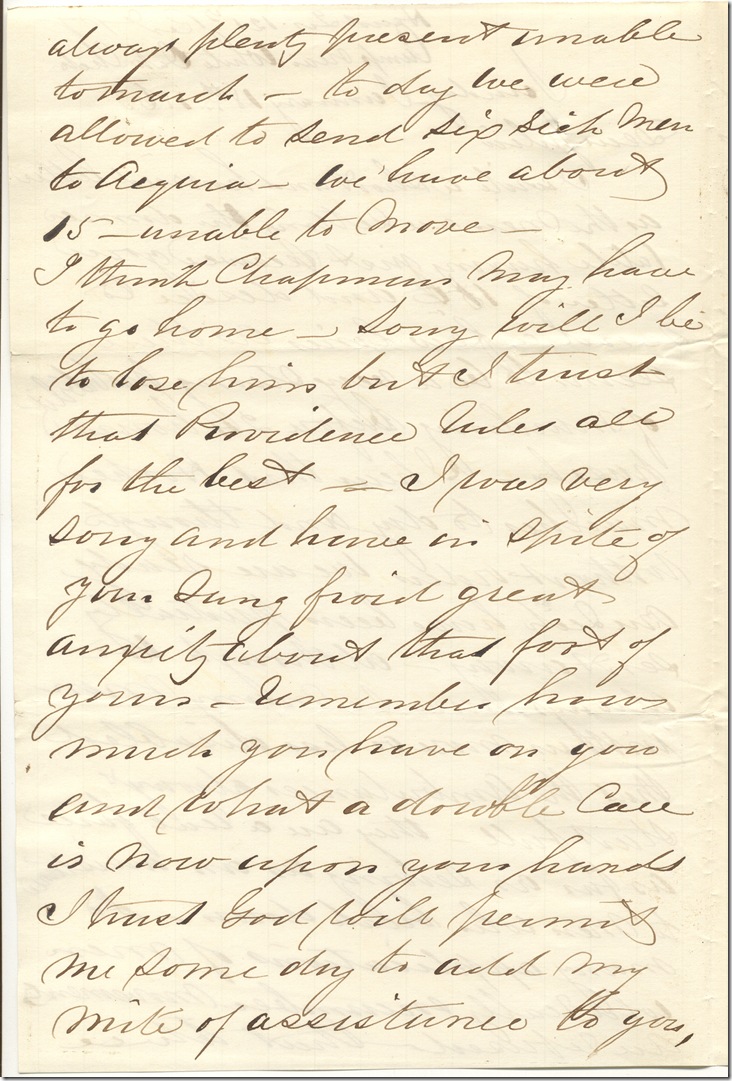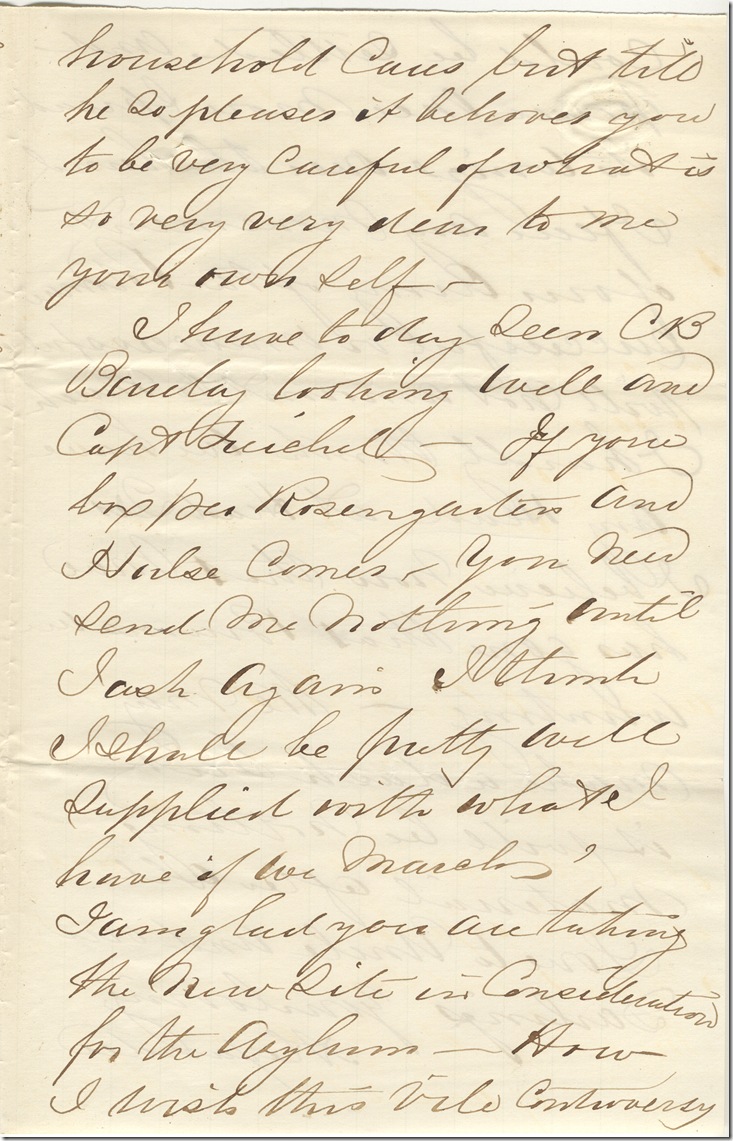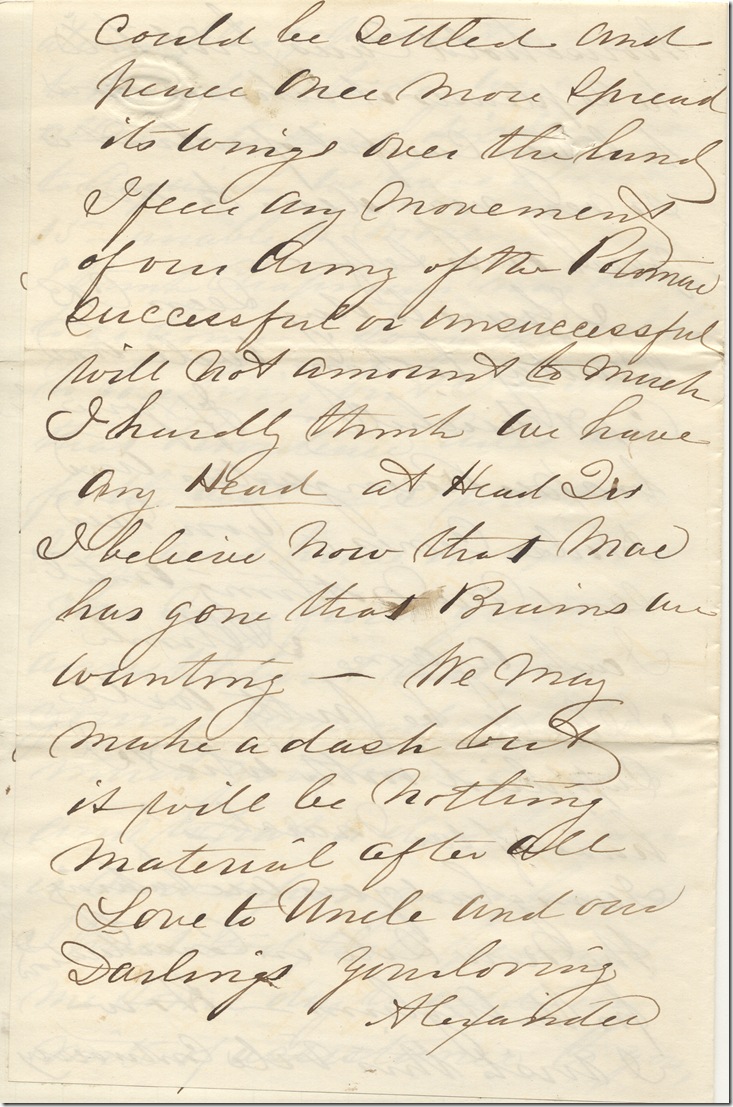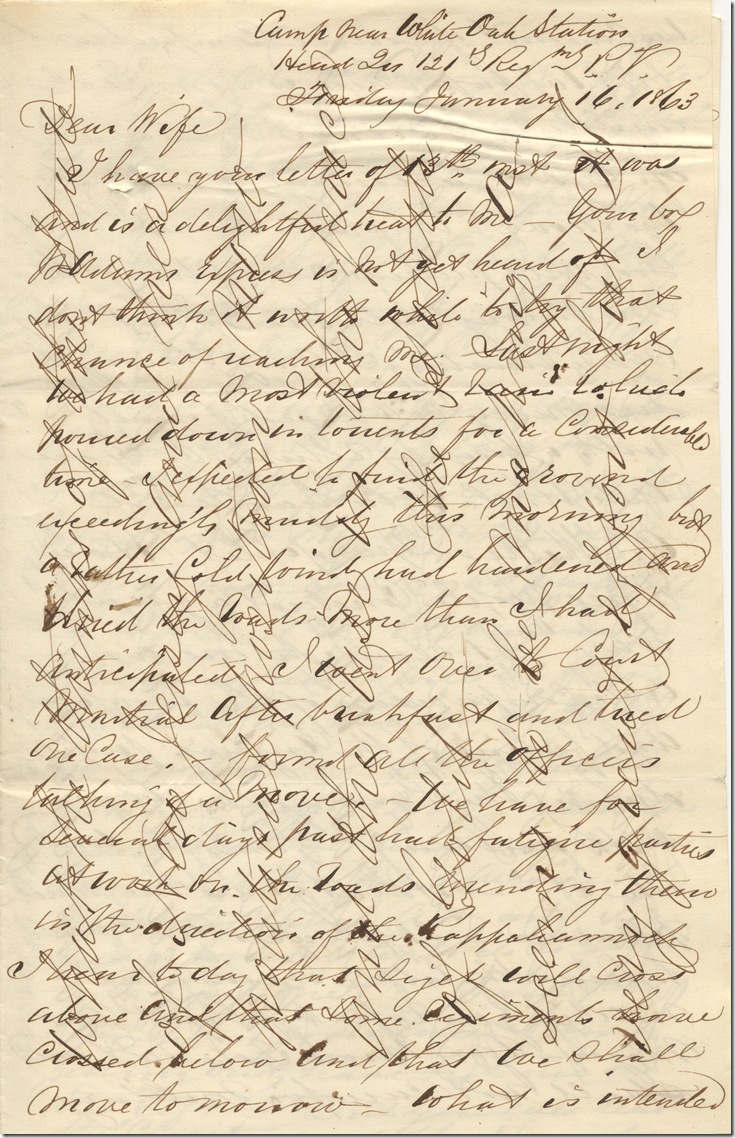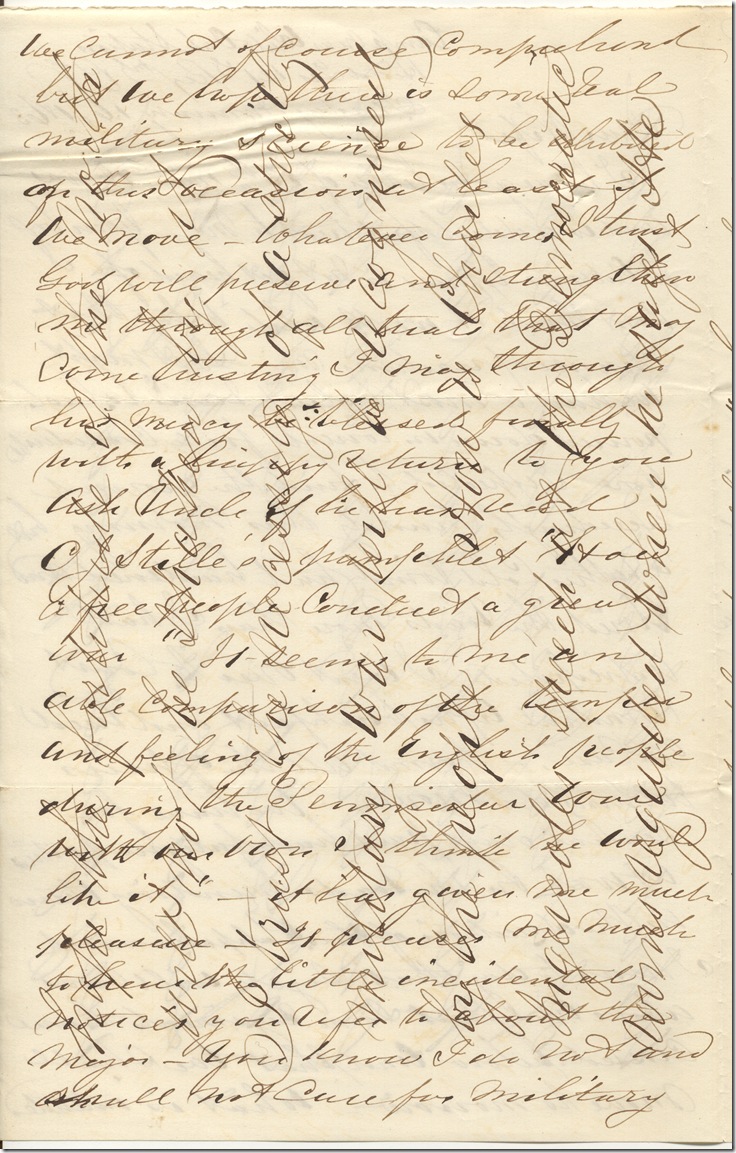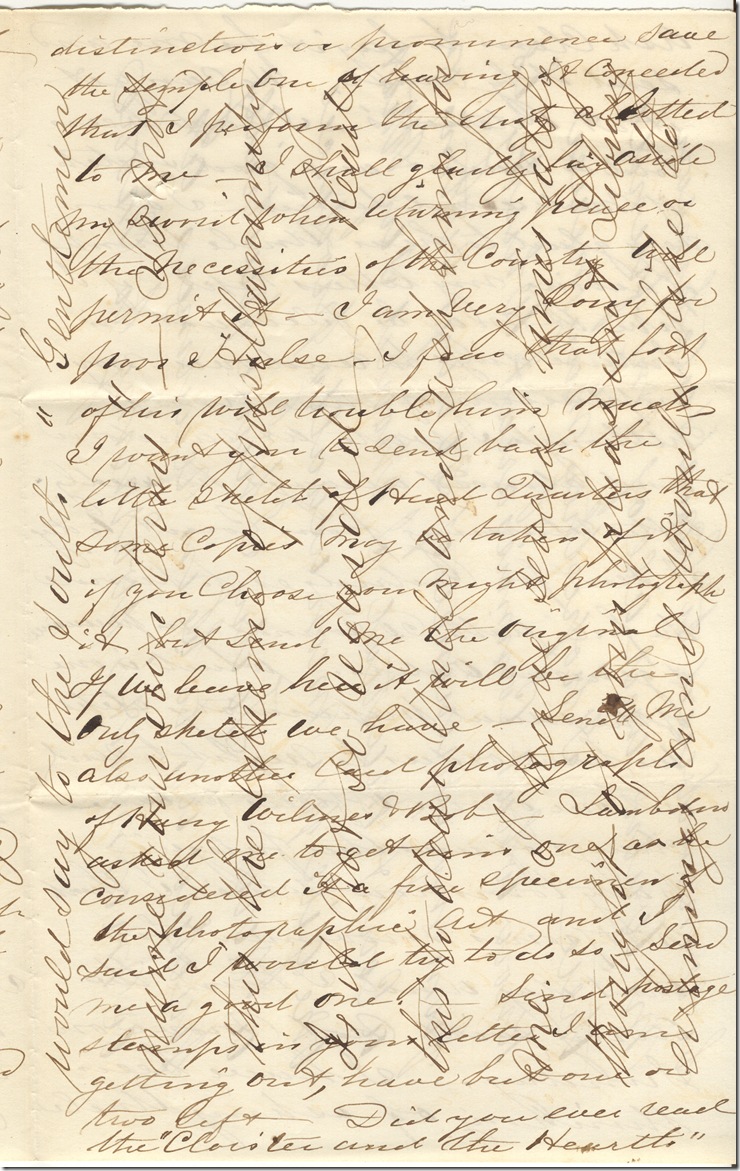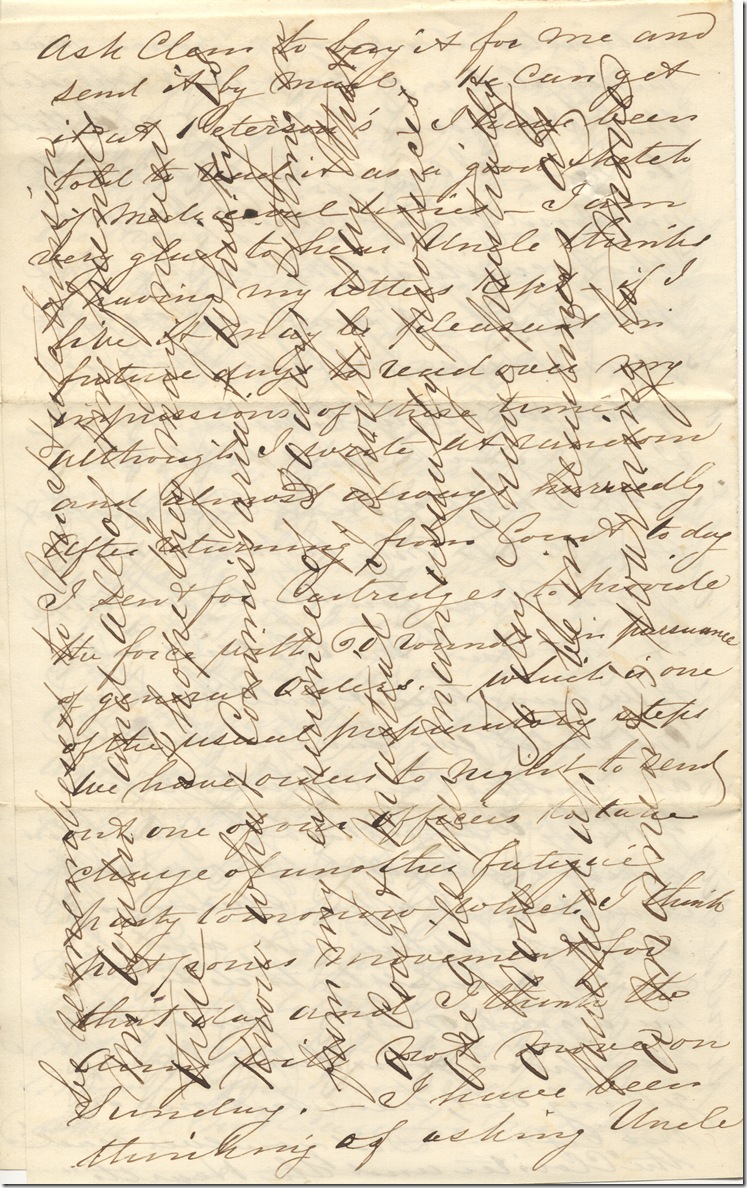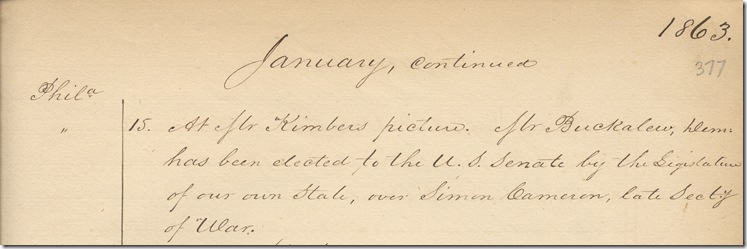Henry Warner Jr. was the younger brother of John Riddle Warner, the grandfather of the poet Marianne Moore. Henry served in Independent Battery G from August 1862 until June 1865.These family letters are preserved as part of the Marianne Moore family papers.
Transcript:
Fort Delaware Jan. 29/63
Dear Father Mother & Annie
Your letters of 26th, one day behind time has just reached me—I would not attempt to answer any letters to day if they had not been from home for I feel very much unlike writing, but I would not have you miss a single day—for the past 10 days I have been very unwell—the day after I wrote my last letter I think I felt worst—for two or three days I was hardly able to get along at all—My disease was all the worst symptoms of Typhoid fever—I had felt unwell for a long time with a dull headache and an indescribable feeling of lassitude and want of appetite but had taken no notice of these symptoms until the disease had greatly far advanced, when I suddenly discovered what was the matter with me—I determined at once to fight it out, desperately, against going to the Hospital if possible—My tongue was coated white and very bad—cold ague chills shook me whenever I left the fire and alternate fever almost parched my face—added to this my head kept up a constant aching—For 60 hours I lived on one small slice of toast and a tin cup full of tea—I took a tremendous dose of Magnesia—waited for a few hours and then thought it better to go down to the Hospital and consult the doctor—He was drunk and of course could not see patients—So the Steward in his abcence prescribed 3 blue pills I took them, but all day I gradually grew worse—Sergt Servis (who was home [illeg.] one) hunted me up a dose of Salts which I took before I went to bed—There is a water-closet in the kitchen, so I concluded to be handy to it—I would sleep then with John Dutch—Who poor fellow done every thing for me that he could have done if he had been my own father—He made me my bed got me warm water in a tub to bathe my feet and waited on me the whole night.—That night I slept scarcely any—I was almost parched up with fever, but after the large amount of medicine I had taken, had commenced to apprate I commenced to feel better—but at this point my throat commenced to get sore and got rapidly worse until it was so sore and so much swollen I could scarcely swallow food or drink—The next night while it was in this state the skin on the glands seemed to have broken, and my nose and throat bled freely for a time and all the next day I spat up large amts of clotted gore—After this, day by day I have grown slowly better—I am well now all but a slight feeling of weakness—I will take good care of myself, and I have my throat still tied up—But I will say I hope I will never get sick here again—for, for a sick man there is no peace—continual noise and not a place to lay his head down—But I am stringing the store of my ills out too long—I have no doubt you are tired before this—I have no other news though and I may just as well fill up with this—Annie’s good, kind and sisterly letter I will answer separately—Johns letter I got last week and will return to when I can spare the stamp—(The letter from you I mean) The newspapers also all came regularly for which please receive my thanks—Let Mr Fink have his own way in that matter—I would rather loose the whole Army than put him to any inconvenience—for he has always been a good customer of mine and a profitable one— Give Miss Carry my best compliments and thanks for her photograph, and tell her if I felt at all, as if I could do myself justice, I would write her a nice little note of thanks, but I will have to defer until a more favourable opportunity—tell her I will give it a place of honour in my collection—Couch that visited you, called at my request, He is a nice fellow and went home to see his wife whom he heard was dying—he is to be back, day after to-morrow—Mrs Servis’ party interested me much, I know I would have been there if I had been home—Remember me to Mrs Servis’ folks when you see them and believe me to be your Affec son & Brother Henry
Citation: Henry Warner Jr., autograph letter to his parents. Fort Delaware, 29 January 1863. Moore VI:5:15
